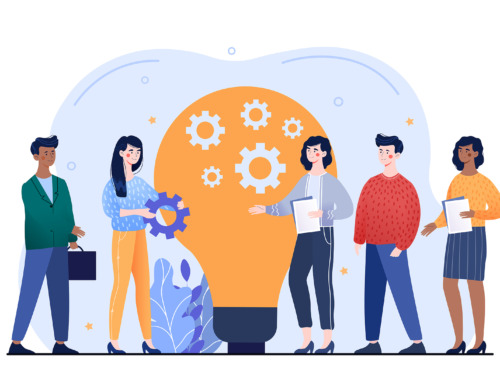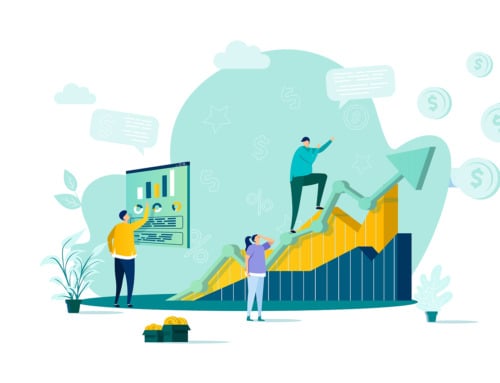A guest post by Build A Better Agency Sponsor Manish Dudharejia from e2msolutions
Building and scaling a digital agency comes with its unique set of challenges. In the dynamic world of digital marketing, success often hinges on making effective decisions. To navigate this landscape, digital agency owners can benefit from adopting practical mental models that serve as guiding frameworks for decision-making. Let’s explore seven such practical mental models that can contribute to the success of digital agency owners.
- Build with Generalists, Scale with Specialists
In the words of venture capitalist Vinod Khosla, “While Building, Hire Generalists While Scaling, Hire Specialists.” This mental model underscores the importance of crafting an agile and versatile team during the initial stages of building your agency. Generalists bring a diverse skill set to the table, enabling the agency to adapt to various challenges.
As the agency grows, the focus shifts to specialization. Specialists bring in-depth knowledge and expertise, allowing the agency to delve deeper into specific niches and provide unparalleled services. Striking a balance between generalists and specialists ensures a robust and adaptable team capable of meeting the evolving needs of clients.
- Hire Job-Doers, Title-Givers Later
Often, rigid job titles can limit the potential of team members. The mental model here suggests “Hire people who’re doing a job without a job title and then give a title to them.” This approach encourages agency owners to prioritize skills and performance over predefined roles.
By recruiting individuals based on their ability to get the job done, agency owners can assemble a team that is not bound by traditional job descriptions. After understanding each team member’s strengths and contributions, titles can be assigned accordingly. This flexible approach fosters a culture of adaptability and continuous learning within the agency.
- Trust First, Gain Trust Later
Building a strong foundation of trust is crucial for any successful team. The mental model “Trust people at the first place in order to gain their trust back” emphasizes the importance of establishing trust from the outset. Trust is a two-way street; by extending trust to team members, agency owners can create a positive work environment.
This approach encourages open communication and collaboration, laying the groundwork for a cohesive team. Trust gained early on contributes to a work atmosphere where individuals feel empowered and supported, ultimately fostering creativity and innovation.
- Align Incentives for Collective Success
The principal-agent problem is a common challenge in agency-client relationships. To address this, the mental model “Your incentives and incentives of people who work on behalf of you for your clients should be aligned” highlights the importance of shared goals.
Ensuring that the interests of your team align with the agency’s objectives and, critically, with the goals of your clients, promotes a collaborative mindset. This alignment minimizes conflicts of interest and creates a collective focus on delivering successful outcomes for both the agency and its clients.
- Embrace Radical Candor for Growth
Constructive feedback is a cornerstone of growth. The mental model “Follow 4A Radical candor system framework mentioned in No Rules Rules: Netflix and the Culture of Reinvention book” encourages digital agency owners to adopt a culture of radical candor.
The 4A Radical Candor system, as outlined in the book ‘No Rules Rules: Netflix and the Culture of Reinvention,’ provides a framework for delivering honest feedback while maintaining a supportive environment. Embracing radical candor fosters a culture of continuous improvement, enabling team members to learn and grow.
- Delegate Tasks to the Passionate
Time is a precious resource, and agency owners must use it wisely. The mental model “Look for the person who loves to do what you hate to do” suggests identifying team members who are passionate about tasks that may be challenging for the agency owner.
Delegating responsibilities to individuals who genuinely enjoy specific aspects of the work not only enhances efficiency but also contributes to a more engaged and satisfied team. This approach allows agency owners to focus on strategic aspects of the business, knowing that tasks are in the hands of passionate and capable individuals.
- The L.I.O.N Framework: Sprint When Inspired. Rest. Repeat.
Productivity is not about constant hustle; it’s about strategic bursts of energy. The L.I.O.N Framework, encapsulated in the mantra “Sprint When Inspired. Rest. Repeat,” encourages digital agency owners to recognize and capitalize on moments of inspiration.
Instead of adhering to a relentless work pace, this model advocates for periods of intense productivity when motivation is high, followed by deliberate periods of rest. This cyclical approach enhances overall productivity, prevents burnout, and allows for sustained creativity over the long term.
In conclusion, adopting these practical mental models can empower digital agency owners to make informed decisions, foster a positive work culture, and ultimately drive the success of their businesses. By integrating these frameworks into their approach, agency owners can navigate the challenges of the digital landscape with confidence and resilience.
Mental Model Framework Resources
To further delve into the world of mental models, digital agency owners can explore resources from thought leaders in the field:
Farnam Street – Visit Fs.Blog for insights on clear thinking by Shane Parrish.
James Clear – Subscribe to ‘The 3-2-1 Newsletter’ for concise and actionable advice on habits and decision-making.
The Almanack Of Naval Ravikant – Explore the wisdom of Naval Ravikant, a renowned entrepreneur and investor, for profound insights into life and business.




